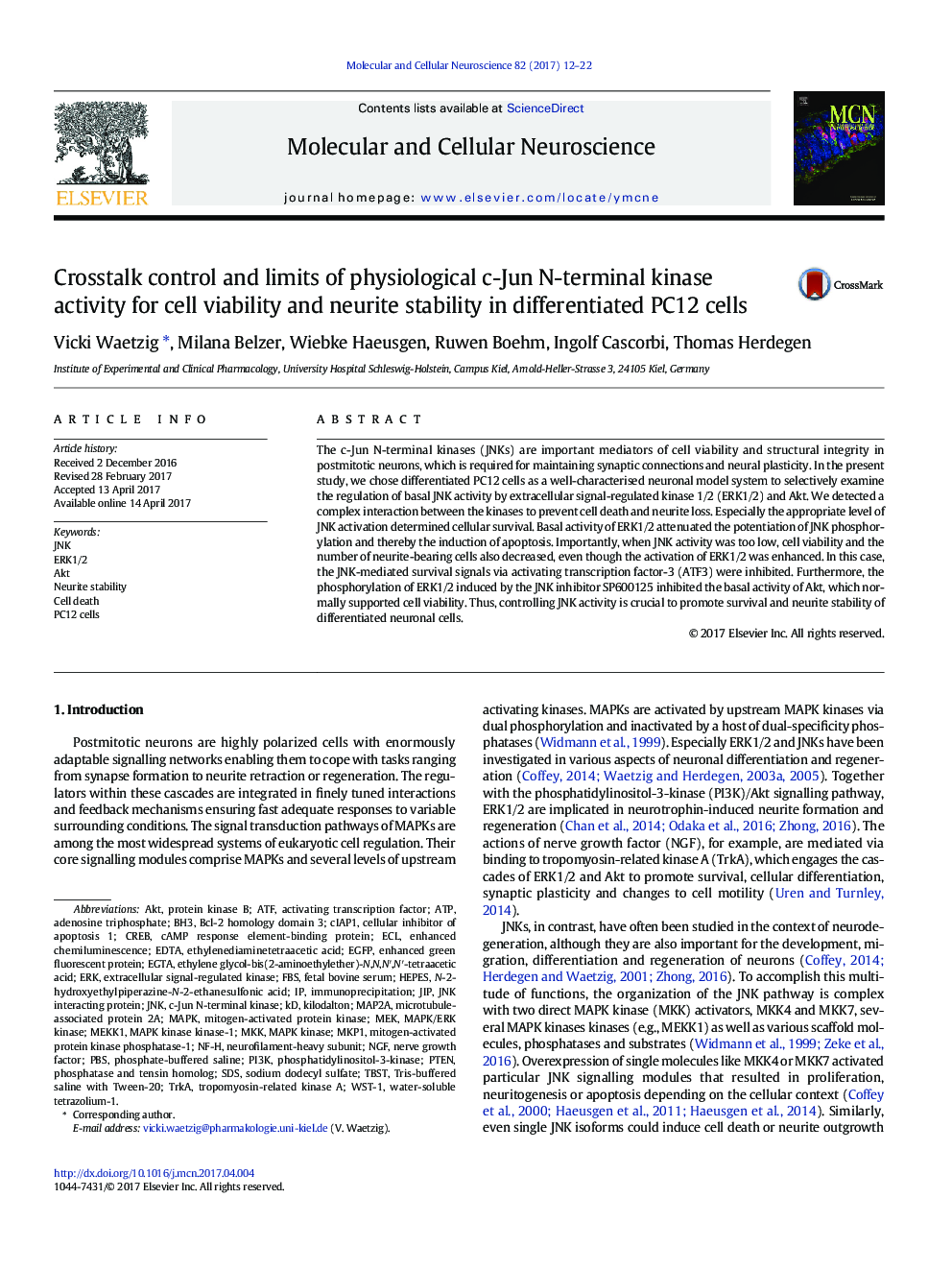| Article ID | Journal | Published Year | Pages | File Type |
|---|---|---|---|---|
| 5534341 | Molecular and Cellular Neuroscience | 2017 | 11 Pages |
â¢JNKs, ERK1/2 and Akt control neurite stability and cell viability in PC12 cells.â¢Basal activation of ERK1/2 and Akt regulates JNK activity.â¢Loss of ERK1/2 activity leads to pro-apoptotic JNK signalling.â¢Physiological JNK activity mediates survival signals via ATF3.
The c-Jun N-terminal kinases (JNKs) are important mediators of cell viability and structural integrity in postmitotic neurons, which is required for maintaining synaptic connections and neural plasticity. In the present study, we chose differentiated PC12 cells as a well-characterised neuronal model system to selectively examine the regulation of basal JNK activity by extracellular signal-regulated kinase 1/2 (ERK1/2) and Akt. We detected a complex interaction between the kinases to prevent cell death and neurite loss. Especially the appropriate level of JNK activation determined cellular survival. Basal activity of ERK1/2 attenuated the potentiation of JNK phosphorylation and thereby the induction of apoptosis. Importantly, when JNK activity was too low, cell viability and the number of neurite-bearing cells also decreased, even though the activation of ERK1/2 was enhanced. In this case, the JNK-mediated survival signals via activating transcription factor-3 (ATF3) were inhibited. Furthermore, the phosphorylation of ERK1/2 induced by the JNK inhibitor SP600125 inhibited the basal activity of Akt, which normally supported cell viability. Thus, controlling JNK activity is crucial to promote survival and neurite stability of differentiated neuronal cells.
